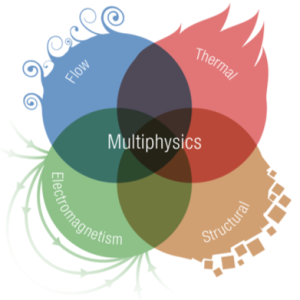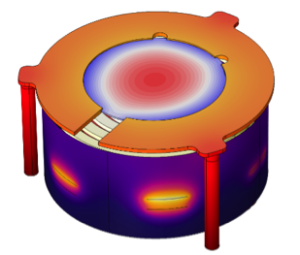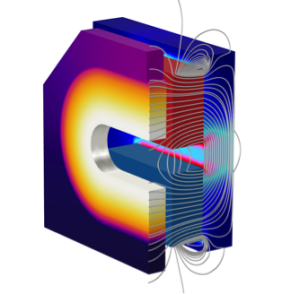DEMCON multiphysics

Address & Contact Information
DEMCON | multiphysics
Institutenweg 25
7521PH Enschede
Tel:+31 (0)88 – 115 20 00
Email:multiphysics@demcon.com
Web:https://www.demcon.com/multiphysics

DEMCON multiphysics supports clients from a wide variety of market sectors, such as the process industry, semiconductor industry, oil & gas, maritime sector, heat exchanger applications, and medical applications. With deep physical insights, we aim to help you achieve your goals in research, development, and engineering programs more efficiently and faster.
Virtual prototyping using simulations plays an essential part in the early stages of a product development process or any other engineering problem. When setting up a simulation, one has to be very careful that all significant physical phenomena are taken into account, but also that it is not overly complex. Therefore, it is essential to have a good overview of all physical effects and their approximations in a simulation, and to be aware of their numerical implications. We have years of experience, fully dedicated to building simulations and helping clients to solve their problems. That means we can deal with complex technical problems in an efficient and reliable manner.
Being part of the wider DEMCON group differentiates us from most typical simulation-only consultancy firms. We are part of a large engineering community (>700 people) and are able to draw upon a wealth of experience from specialist engineers and scientists in many technical disciplines.
Areas of Expertise
Currently, we use COMSOL Multiphysics®for electromagnetic, thermal, and complex multiphysics problems. When modeling induction heating, for example, it is essential that radiative heat transfer is taken into account. In addition, there will be temperature-dependent material properties, making this a strongly coupled, nonlinear problem. For such problems, COMSOL Multiphysics®is especially suited. The same is true for resistive heaters used at high temperatures. To the right is a picture of a resistive heater used in a pulsed laser deposition (PLD) device.
 Another example is the thermal analysis of a coil. In a coil, the many windings conduct heat very efficiently in one direction. In the other directions, the heat has to diffuse through the potting. Combining this anisotropic effect with a temperature-dependent resistivity makes this a complex multiphysics problem. To the right is a picture of an actuator where this type of analysis is relevant. For many types of electrical machines, such analysis is important to determine limits on operating conditions.
Another example is the thermal analysis of a coil. In a coil, the many windings conduct heat very efficiently in one direction. In the other directions, the heat has to diffuse through the potting. Combining this anisotropic effect with a temperature-dependent resistivity makes this a complex multiphysics problem. To the right is a picture of an actuator where this type of analysis is relevant. For many types of electrical machines, such analysis is important to determine limits on operating conditions.

